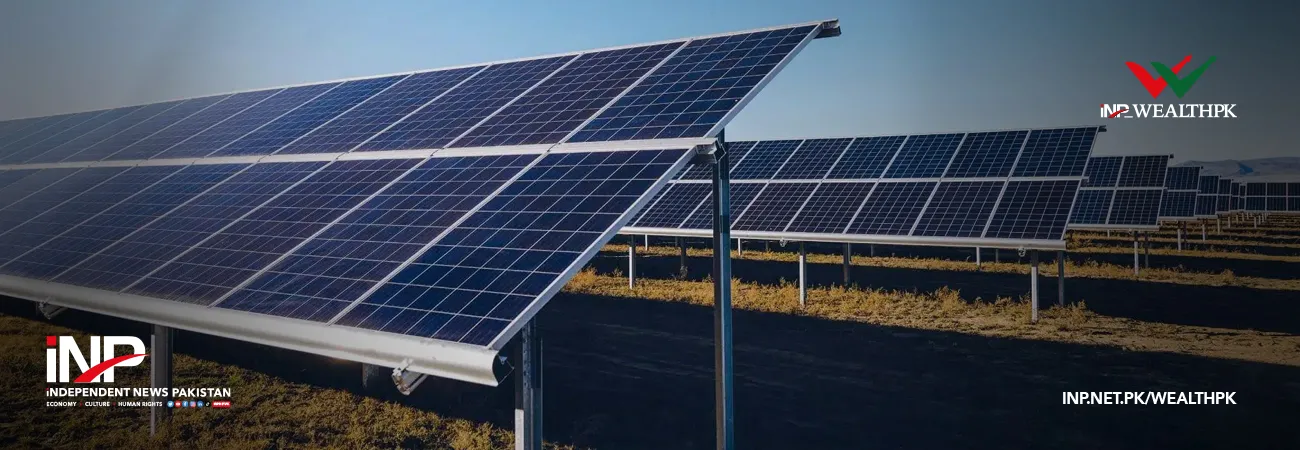INP-WealthPk
Amir Saeed
Pakistan must find fair ways to manage solar power growth, protect electric supply companies, and ensure the availability of reliable and affordable energy.

Talking to WealthPK, Shafqat Hussain Memon, an energy researcher at the Mehran University of Engineering and Technology (MUET), highlighted that the recent surge in solar adoption in Pakistan, driven by declining panel costs and rising electricity tariffs, has made net metering a central policy concern.
“Net metering, once a catalyst for solar expansion, now requires careful re-examination to ensure fair cost sharing, grid stability, and financial health of the power distribution companies (DISCOs). The challenge has shifted from expanding solar to integrating it effectively, so that benefits do not come at the expense of DISCOs or non-solar consumers.
“An integrated policy strategy is essential to safeguard affordability and sector sustainability, as failure to act risks accelerating grid defection and worsening the circular debt crisis,’’ Memon said.
He pointed out that net metering’s early success had encouraged private investment, reduced fuel import reliance, and fostered a local industry. However, with a 155% tariff hike in three years and worsening grid reliability, Pakistan has seen an unprecedented solar growth, becoming the world’s sixth-largest solar market.
“While this eases consumer costs, it pressures DISCOs, as high-paying users leave the grid, raising concerns over revenue sustainability and further straining the sector’s finances.’’
“The policy must address these imbalances by regulating solar expansion, diversifying demand, and addressing technical challenges like the grid’s limited hosting capacity. Reforms should be data-driven and inclusive, with transitional safeguards to avoid disrupting investment,’’ Memon added.
“A phased approach, including time-of-use tariffs, smart grid upgrades, and battery storage incentives, is needed. Energy inequity remains a concern, as the rural areas rely on solar for basic needs, while urban adoption lags. Prioritising decentralised solutions and community microgrids is vital for equitable access and long-term energy security.’’
Talking to WealthPK, Rafi Ullah Shams, Manager of the RS Solar Solution, said the solar sector is at a defining juncture. The country must adopt a phased, evidence-based approach that balances solar growth with grid reliability and financial sustainability, he added.
“Modernising distribution infrastructure, deploying advanced metering, and incentivising battery storage are essential to manage variability and maintain stability. Policymakers should also focus on bridging rural-urban disparities by supporting community microgrids and decentralising energy solutions.’’
He added that transparent, consistent regulations will encourage investment and innovation. Only a holistic and inclusive strategy will ensure Pakistan’s energy transition is both sustainable and equitable for all segments of society.
He emphasized that it is equally important to involve all stakeholders — consumers, DISCOs, and local communities — in policy design to build trust and ensure practical solutions. By embracing innovation and maintaining a long-term vision, the country can transform its energy landscape, turning the current challenges into opportunities for growth, resilience, and greater energy independence.
Credit: INP-WealthPk













